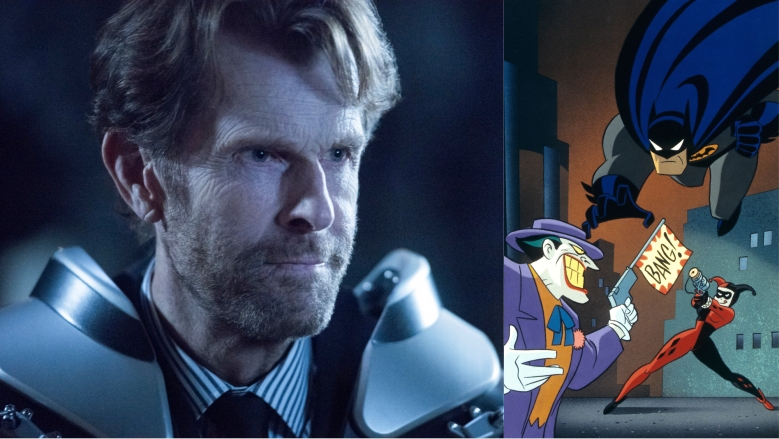
When it comes to an iconic superhero performance, the voice is the key. Superheroes were born on the comics page, a visual medium that can drastically change a character’s appearance depending on the artist, and an actor’s physical performance is just one more variation. But if that performance becomes the voice that people associate with that hero — the voice that you hear when you read a comic, that you imitate when you play with your action figures — it becomes intrinsically tied to the character.
The late Kevin Conroy is the voice of Batman. I don’t say that in the past tense, because he will always be the voice of Batman. Conroy voiced Bruce Wayne and his superhero alter ego in hundreds of appearances across television, film, and video games, playing the character from a dizzying number of angles. No matter how comedic or dark the story was, whether Batman was snarling at supervillains or crooning in a jazz bar, Conroy imbued the character with charm, pathos, and menace, setting the pinnacle for superhero performance that has not been reached by anyone since. He even got to play Batman in live action, appearing as an alternate-Earth version of the character in The CW’s 2019 superhero crossover, “Crisis On Infinite Earths.”
Conroy passed away from cancer yesterday at the age of 66, a heartbreaking loss for superhero fans who have welcomed the actor into their homes, hearts, and minds for 30 years. Conroy was also one of the few out gay elders in the superhero industry, and it’s devastating that we won’t get to hear more of his voice, both as Batman and as Kevin.
Born in 1955, Conroy was a stage and TV actor who worked consistently throughout the ’80s before being cast in the lead role in 1992’s “Batman: The Animated Series.” While out in his private life, he kept his sexual orientation quiet professionally, although he did appear in some high-profile gay roles early in his career. He was in the Broadway premiere of Edward Albee’s “Eastern Standard,” where he played a TV producer living with AIDS, and recurred on “Dynasty” as a lawyer attracted to Steven Carrington, one of the first gay main characters on primetime TV.
In his autobiographical comic with artist J. Bone, “Finding Batman” (released in “DC Pride 2022”), Conroy opened up about his experience as a gay actor living through the AIDS epidemic and trying to start a career in an industry that refused to put out gay performers in leading roles. It’s an enlightening look at how personal experience impacts performance, building to the moment when Conroy’s “throaty, husky, rumbling” Batman voice emerges for the first time:
“It seemed to roar from 30 years of frustration, confusion, denial, love, yearning…
Yearning for what? An anchor, a harbor, a sense of safety, a sense of identity.”
I spent five years writing about Conroy’s Batman performance when I did weekly retrospective recaps of “Batman: The Animated Series” and “Justice League” for The A.V. Club. The astounding quality and versatility of his performance was undeniable, but I didn’t realize I was connecting to something else in his voice, something that was speaking to me as a gay man who had only come out a few years prior and still felt adrift in a world that had completely changed because I was a new person. How many other young gay kids had watched “Batman: The Animated Series” and felt that yearning for safety and identity? Given the show’s huge, deeply passionate fanbase, probably a lot.
Coming out of the closet is like the bat crashing through the window in front of Bruce Wayne, the birth of a new identity that has to coexist with who you were before. The Bruce Wayne/Batman dichotomy is essential to Conroy’s performance, but these identities aren’t at odds. They have a mutually beneficial relationship, where Batman’s power gives Bruce the strength to overcome his grief while Bruce’s humanity prevents Batman from ever going too far.
This enhances a fundamental aspect of Batman — that he’s an ordinary human being who finds the strength in himself to push through his trauma so he can prevent others from feeling his pain. Batman isn’t an alien or a demigod or a science experiment, and Conroy understood that Batman is the product of Bruce’s self-determination, a champion for the power of the human spirit.
Conroy had a reputation for being especially gracious to fans during his regular convention appearances, even as his health began to worsen in recent years. You had the sense that playing Batman was more than a paycheck to him, that it was his opportunity to connect with a community that he helped build with his work. Conroy may be gone, but as long as there is a Batman, his voice will continue to bring people together.
Sign Up: Stay on top of the latest breaking film and TV news! Sign up for our Email Newsletters here.








